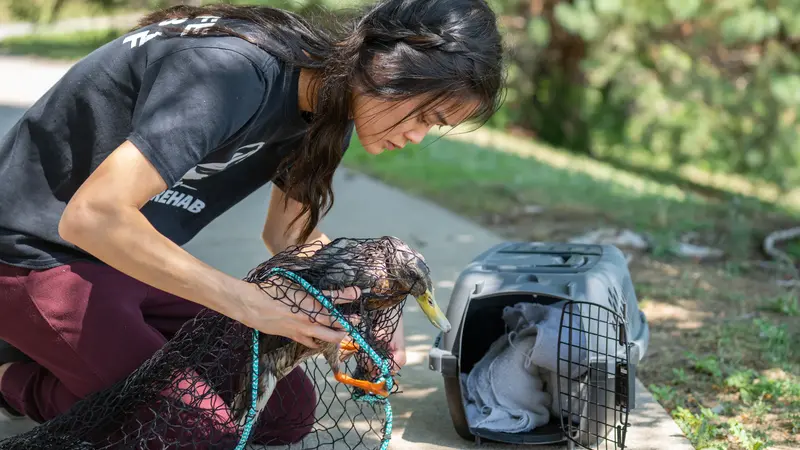Exotic Animal Rehabilitation in Omaha, NE is an important aspect of wildlife conservation. It involves rescuing injured, sick, or orphaned exotic animals. Moreover, it provides them with the necessary care and ultimately returns them to their natural habitats. However, this important process comes with several challenges, especially in a city like Omaha, NE. From financial constraints to regulatory hurdles, the journey to rehabilitate exotic animals takes work. Understanding these challenges can bring light to the complexity of this work and why it is essential for organizations to continue their efforts.
Financial Strain and Limited Resources in Exotic Animal Rehabilitation in Omaha, NE
Finding adequate funding is one of the biggest issues Omaha’s animal rehabilitation facilities face. Exotic animals, in contrast to domestic pets, frequently need specialized care, which can be expensive. Veterinarian care, food, medication, and habitat upkeep all add up. Furthermore, because many exotic animal species are rare, it takes more time and funds to care for them.
Funding often comes from donations, grants, and fundraising events. However, these sources are not always consistent. Without steady financial backing, rehabilitation centers may struggle to provide the necessary care for all animals in need. Centers work tirelessly to rehabilitate exotic animals and constantly face this challenge. Without adequate funds, they might limit the number of animals they can help, which in turn can limit their impact.
Regulatory Hurdles and Legal Barriers
Exotic animal rehabilitation is heavily regulated to ensure the safety of both the animals and the public. In Omaha, NE, centers face a complex web of local, state, and federal rules and regulations. These regulations govern the care and handling of exotic species. These laws are there to protect both the animals and the community, but they can also create significant barriers for rehabilitation centers.
For instance, obtaining the necessary permits to house and rehabilitate certain exotic species can be a lengthy and expensive process. Furthermore, laws around wildlife releases are strict, requiring rehabilitation centers to ensure that an animal is fully capable of surviving in the wild before it is released. This can sometimes delay the rehabilitation process.
Public Awareness and Education
Another challenge faced by animal rehabilitation centers in Omaha is a lack of public awareness. Many people are unaware of the issues that exotic animals face, from illegal poaching to habitat destruction. Without public support, rehabilitation efforts can be limited, both in terms of resources and the number of animals that can be helped.
Education is key to raising awareness. To raise awareness of the value of wildlife conservation and rehabilitation, rehabilitation facilities frequently organize outreach events and collaborate with nearby zoos, schools, and conservation groups. However, despite their best efforts, getting the message across can be difficult. People may not always understand why rehabilitating exotic animals is so important or why it requires such special care.
Many rehabilitation centers have taken significant steps to educate the public through their programs and partnerships. By increasing public understanding, they hope to inspire more people to support exotic animal efforts, whether through donations, volunteering, or advocacy. Still, public awareness remains an ongoing challenge.
Lack of Skilled Professionals
Exotic animals are not the same as domestic pets. They have specific needs that require highly trained professionals. Unfortunately, there is a shortage of veterinarians and rehabilitation specialists who are experts in Exotic Animal Rehabilitation in Omaha , NE, the demand for professionals in exotic animal care often outstrips supply.
Many exotic animal species, such as reptiles, birds, and large mammals, have unique medical requirements that general veterinarians may not be equipped to handle. Specialized knowledge in areas like nutrition, behavior, and handling is essential. Without access to skilled professionals, rehabilitation efforts can be delayed or less effective.
Rehabilitation centers face this challenge regularly. They often rely on a dedicated, albeit small, team of experts to manage the various needs of exotic animals. Unfortunately, the need for more trained professionals can make this task daunting, requiring the team to wear multiple hats.
Behavioral Issues and Socialization
Exotic animals, especially those held in captivity for long periods, often have behavioral issues that make rehabilitation difficult. Many of these animals have never had the opportunity to interact with others of their kind or live in a natural environment. This lack of socialization can hinder their ability to thrive in the wild after rehabilitation.
In some cases, animals that the shelters rescue from abusive or neglectful situations may exhibit signs of trauma, such as fear, aggression, or distrust of humans. Rehabilitation centers must address these behavioral issues before an animal can be released. This process can take time and requires patience, experience, and a specialized approach.
For example, behavior specialists work closely with each animal to rebuild their trust and teach them the survival skills they need. However, this is a delicate process. It is challenging to determine the right balance between rehabilitation and socialization while ensuring the animal is ready for life in the wild.
Overcrowding and Capacity Limits
As exotic animal rehabilitation centers continue to receive more animals in need, overcrowding becomes an increasing issue. Unfortunately, many centers cannot care for an unlimited number of animals. This can lead to difficult decisions regarding which animals receive care and which may need to be turned away.
Centers often operate at or near capacity. When they are unable to take in more animals, they must rely on a network of other rehabilitation organizations in Omaha and beyond. Overcrowding, however, can stretch resources thin, making it harder to provide special care for each animal.
Conclusion
Exotic Animal Rehabilitation in Omaha, NE, faces numerous challenges, including financial strain, a lack of trained professionals, regulatory barriers, and behavioral issues. However, organizations like JS Exotics are doing remarkable work in overcoming these obstacles. Through public education, expert care, and persistence, these centers continue to play an important role in the conservation of exotic species. While the challenges are significant, the efforts of those involved in exotic animal rehabilitation in Omaha are invaluable in ensuring the survival and well-being of these incredible animals.


